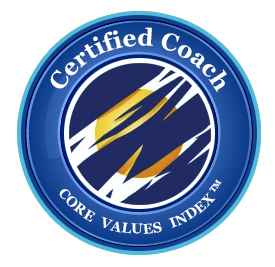
by Dr. JL Knight | Feb 20, 2017 | Leadership Coaching
Leadership coaching is an individualized process that builds a leader’s capability to achieve short-and long-term organizational goals. Coaching is personalized, customized, usually conducted one-on-one for a defined period of time and with a specific business purpose in mind.
Executive Leadership Coaching, however, focuses on one on one individual coaching with executives, individuals in top leadership positions, pastors, leaders, and business owners helping to achieve their individual business and leadership goals while providing additional insight on overcoming obstacles, decision making, organizational issues, and greater career satisfaction
When is Executive Leadership Coaching Needed?
According to Forbes.com:
People, relationships, organizations and behavioral change are what executive coaches know best. When an executive is struggling to learn how to best manage herself and engage others, you’ve found the sweet spot for executive coaching.
He might be a chief executive officer trying to figure out how to work with his board chair. Or a regional vice president scaling up to global responsibility, learning how to lead her former peers. Or a technical wizard who destroys teams with his resistance to all ideas but his own.
But be warned: An executive coach is not a consultant. He may have technical or functional expertise. But he should not be used as an answer person, an extra pair of hands or a bolster for a weak leader. He helps executives think through and tackle their own problems. Self-reliance, not dependency, is the goal.
Being an effective leader is not always easy and like any skill, it takes time and effort and needs nurturing; it really helps to have an executive coach who can support you on your journey of mastering leadership.
The Business Transformation Coach, LLC.

by Dr. JL Knight | Feb 18, 2017 | Customer Service
Statistics show that, on average, U.S. companies lose half of their customers every five years.
It’s true that acquiring new customers will help your business grow. However, your current customers are the lifeblood of your business and keeping them happy should be your highest priority. Here are a few ways to make sure your customers keep coming back.
* Understand lost customers. Many business owners mistakenly believe that customers choose to patronize other companies solely because of better prices. While pricing can be a concern, customers often head to the competition when they don’t feel valued.
A change of lifestyle may have also created a situation where customers no longer need your product. By staying in touch with their needs, you might be able to adjust your offering to continue servicing them.
* Know your customer’s top priority. Maybe it’s reliability or speed or cost. Your company should know your clientele’s No. 1 priority and consistently deliver it. Remember, customers’ desires change frequently, so ask yourself this question every six months.
* Acknowledge the lifetime value of customers. The lifetime value of your customers is the income you would gain if a customer stayed with you as long as they could possibly buy your product or service.
For example, the lifetime value of a customer employing a financial adviser could be several decades and could span several generations. Treat the parents well and you could win the children’s business.
* Create a positive first impression. Good first impressions tend to generate loyal customers, and you get only one chance to make a positive first impression. Appearance is important. The exterior and interior of your business should be neat and clean.
* Listen to the customer. Employees should listen actively to customers. Reassure your customers that you genuinely want to help them. Customers will judge your business based on the politeness, empathy, effort and honesty of your staff.
* Address and resolve complaints quickly and effectively. Inevitably, your employees will encounter unsatisfied customers. Whether they’re returning an item or changing a service, customers expect a fair policy. If you cannot offer a resolution immediately, let the customer know when he or she can expect an answer.
The Business Transformation Coach, LLC.

by Dr. JL Knight | Feb 18, 2017 | Business plans
For years, I have tried to answer this one question: What do small businesses that achieve sustained growth do differently from those that do not grow?
As a business coach, I speak to many business owners each year. I’ve learned that there are no silver bullets or 17-point checklists that will lead to guaranteed growth. There are, however, seven specific areas in which growth companies concentrate their efforts.
1. Strong sense of purpose. Most leaders of companies that have achieved growth discover that it takes more than the promise of increasing financial reward to fuel their aspirations and ambitions. They find a higher calling than simply the pursuit of “more money.”
2. Outstanding market intelligence. This is an organization’s ability to first recognize, then adapt, to fundamental changes in the marketplace. Many times, small-business owners become too myopic, seeing only a limited view of the markets in which they compete. Growth leaders see the bigger picture.
3. Effective growth planning. This is the best predictor of whether or not a business will grow. To be effective, a plan for growth does not need to be overly formal or complicated. However, it does need to be written, well-communicated and regularly updated.
4. Customer-driven processes. These days, every company I talk to believes it is customer-driven, when actually very few really are. Take a look at all of the business processes from a customer’s perspective. Are they in place to make it easier for the company, or to help deliver on the promise of faster, cheaper and better for the customer?
5. The power of technology. Successful leaders don’t let the boom and bust of technology cycles give them the excuse to ignore that we live in an information age. If a company is in business, it is in the technology business.
6. The best and brightest people. Growth leaders recognize that they are only as good as the people with whom they work. The ability to hire, train and retain the best and the brightest people is often the difference between success and failure.
7. Seeing the future. Few organizations take the time to regularly consider the future. Growth leaders learn how to diligently monitor and interpret the macro forces of change affecting the world in which they live.
The Business Transformation Coach, LLC.

by Dr. JL Knight | Feb 18, 2017 | Life Coaching
Do you know that you have more to offer, but struggle to understand how to apply yourself in order to achieve your goals? Do you find it difficult to believe that you have the ability to fulfill your dreams and live the life that you have always wanted to have?
Many people struggle each and every day with a sense that they will never live up to their full and true potential. And unfortunately, many of those individuals will never overcome the personal mental barriers and fears that prevent them from accomplishing their life’s purpose.
But, there is good news for those who are willing to ask for help. With personal life coaching and personal development training, anyone can achieve their true potential. They can reach their goals and find that something special within themselves that will make their life feel more complete.
How Personal Life Coaching Can Help
So, what is personal life coaching exactly? Life coaching is a process for individuals to undertake with the help of a coach, who will have a number of conversations with the individual and provide mentoring and advice based upon what is needed by the client. During the process, individuals – or even groups – will be asked questions that help them to really examine their lives through a whole new set of eyes and from an unbiased, knowledgeable perspective.
Some questions will be relatively straightforward: are you happy with the way your life is going? What are you looking to improve in your life – the way you accomplish your work, the amount of and quality of time that you have for your family? Other questions will require more thoughtful answers.
These questions are designed to help the life development coach see to the obstacles that stand between the client and their ultimate success in realizing their goals. These questions encourage the life coach’s clients to focus on their fears, their challenges, and on whether or not they are committed to reaching their stated goals.
Developing A Path For Success
Based on the answers to all of the questions that a life coach asks – the easier and the more difficult questions – a life coach will work with his or her client to re-structure the way that the individual approaches their life, work and problems. In part, this may mean that the client will be thinking differently about how to solve problems or defining an effective strategy towards reorganizing their lives in a positive way. It may also mean that the client will begin to condition him or herself to actually reach his or her goals.
Sometimes, the personal life development coach will recognize that the individual’s real goals differ from his or her stated goals in a number of ways. When this happens, the life coach will help his or her client see the contradictions between their stated and real goals.
In order to help with this conditioning, a life coach is dedicated to teaching their client’s how to use tools that will boost their level of self-accountability. He or she will work with the client to help them overcome their fears and stumbling blocks, so they are better able to achieve their goals – their personal goals, their professional goals and even, in many cases, their financial goals.
Reaching goals, like life coaching itself, is a process. Unlike a therapist, a life coach will not work with his or her client to discover the roots of their problems. Instead of looking to the past, a life coach will help their client look to the future. At the end of the process, an individual will be able to clearly identify his or her goals and develop the tools and resources that are needed to achieve them.
Final Thoughts…
Whether the client desires to work towards owning and operating their own business, accelerating their career, finding balance between work and family, or merely looking for a way of identifying what will make them truly happy in their own lives, a personal life coach is an ideal partner.
It must be noted that the job of the life coach is not to take you from Point A to Point B; instead, he or she will help you to learn the mental tools that you will need to reach your destination on your own and to provide encouragement along the way.
The Business Transformation Coach, LLC.








